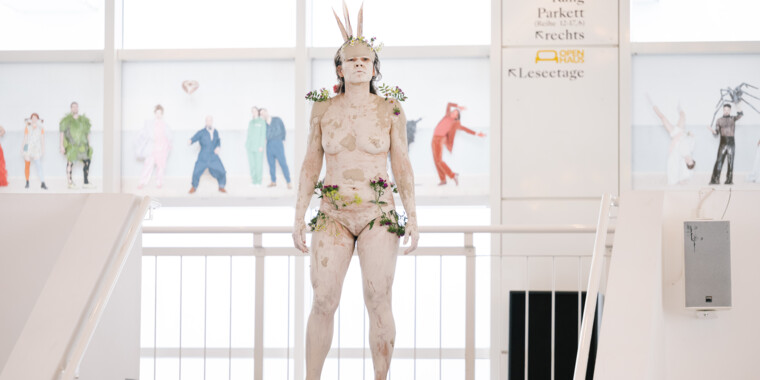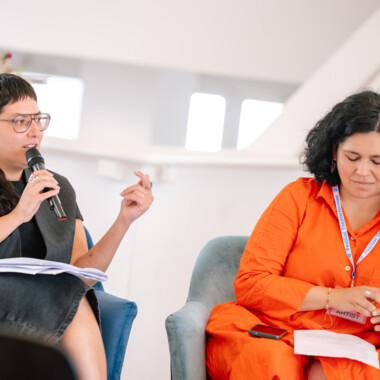


Salon K: Cultural Reforestation
Olinda Tupinambá
Bahia
With her talk, artist and environmental activist Olinda Tupinambá invites us to explore cultural reforestation as a transformative action. She understands this as a political practice that reclaims and strengthens Indigenous cultures and knowledge, while fostering reconnection between environment and community. Her involvement in reforestation initiatives in Southern Bahia, Brazil, intersects with her artistic practice to expose environmental injustices and affirm Indigenous presence and resistance. In resonance with Indigenous philosopher and environmental activist Ailton Krenak’s call to reforest the imagination, her work cultivates alternative forms of kinship that extend beyond the human.
In cooperation with the Kulturdreieck, the following exchange opens a space for reflection on the redesign of Prinzenstraße by interweaving ecology, culture, and community engagement.
Olinda Tupinambá is a multidisciplinary artist with a degree in Social Communication. She is a cultural worker, performer and filmmaker. Her work is characterized by using her body as a political body - a body that transforms to speak of other possible worlds, to make environmental-political issues visible and to discuss the relationship between humans and nature, which is a recurring theme in some of her works. She has been working in the field of audiovisual media since late 2015, producing and directing ten independent films in the fields of documentary, fiction and performance.
Jasmin Laske is a landscape architect with a master’s degree from Leibniz University Hannover. Her work lies at the intersection of urban planning, climate adaptation, and research. At the City of Hannover, she explores how cities can become more resilient to the impacts of climate change, with a particular focus on strengthening blue-green infrastructure—measures that integrate water and vegetation to create more livable urban environments. For nearly three years, she has been part of the Department for Environmental Planning and Climate Change Adaptation, contributing to two research projects. Her practice bridges planning and scientific inquiry, continually addressing the role of design in times of ecological transformation.
Ivana Rohr studied Creative Writing at the University of Hildesheim, holds a degree in Cultural Studies, and was a master student under Candice Breitz and Eli Cortiñas at the University of Fine Arts in Braunschweig. Professionally, she operates at the intersection of artistic and urban practice. As one of three partners, she leads the team and business operations at Endboss – an interdisciplinary studio focused on spatial questions and responses. Endboss implements projects across Germany that explore the tensions between cultural and participatory urban development, innovative open space planning, and architectural intervention. In addition, she is active in teaching – most recently at the Burg Giebichenstein University of Art and Design, and currently in the field of architectural theory at Leibniz University Hannover.
Production credits
With Olinda Tupinambá, Jasmin Laske Moderation Jamille Pinheiro Dias & Jacqueline Azarmi Eskandani (Jacq) Photos China Hopson
In Cooperation with the Kulturdreieck Hannover.